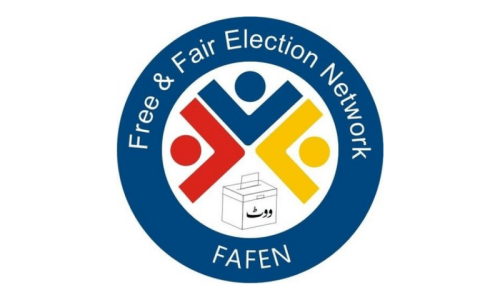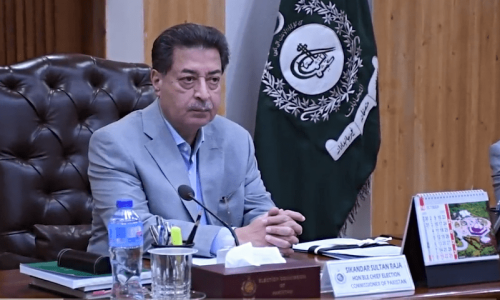THE election tribunals have let the nation down.
Following one of the most contested general elections in recent memory — elections so controversial that, more than nine months later, they still cast a long shadow over the incumbent government — these tribunals were tasked with adjudicating the results of 350 National Assembly and provincial assembly seats that had been disputed by the candidates.
It was expected that the tribunals would work in an expeditious manner and do justice where there was compelling evidence of misdoing, as alleged by many candidates and supported by the findings of various independent observers. By acting transparently and with purpose, they could have helped the nation move forward. Instead, with the year almost out, only 17pc of the cases before them have been decided; the legitimacy of the ruling set-up remains in doubt, while yet another protest has been called this coming weekend to protest the ‘theft’ of the people’s mandate.
Meanwhile, the ruling coalition has been able to use its numbers to pass a highly controversial constitutional amendment and a slew of widely criticised laws to consolidate its strength. The Election Commission of Pakistan, which is responsible for appointing the tribunals, has seemed least interested in their progress, even though legal deadlines for the conclusion of tribunal proceedings have long lapsed.
Indeed, the ECP was itself responsible for delaying the formation of election tribunals for Punjab, where the bulk of the disputes were registered, over a petty turf war with the Lahore High Court. Though it eventually managed to appoint retired judges of its choice — thanks to some timely changes to the law — it has now emerged that four out of the eight tribunals for Punjab had not heard a single petition by Nov 15, while the remaining four had decided only 10 out of the 155 disputes lodged. The Balochistan tribunals fared better, having resolved 30 out of the 51 disputes before them. On the other hand, the KP and Sindh tribunals had respectively decided only eight and 12 of the disputes before them.
With the election tribunals having thus failed to fulfil the purpose for which they were created, it is not surprising that Pakistan has not been able to stabilise. In the absence of the legitimacy conferred by a free and fair election, the authorities continue to resort to repressive means to enforce ‘order’. However, these will not bear long-term results and are only hollowing out the country’s already crumbling political structure.
It is imperative, therefore, for the election tribunals to conclude all proceedings as soon as possible while delivering justice. Too much time has already been lost in dilly-dallying — all further proceedings must now be completed transparently so that faith in the electoral process can be restored.
Published in Dawn, November 19th, 2024













































Dear visitor, the comments section is undergoing an overhaul and will return soon.